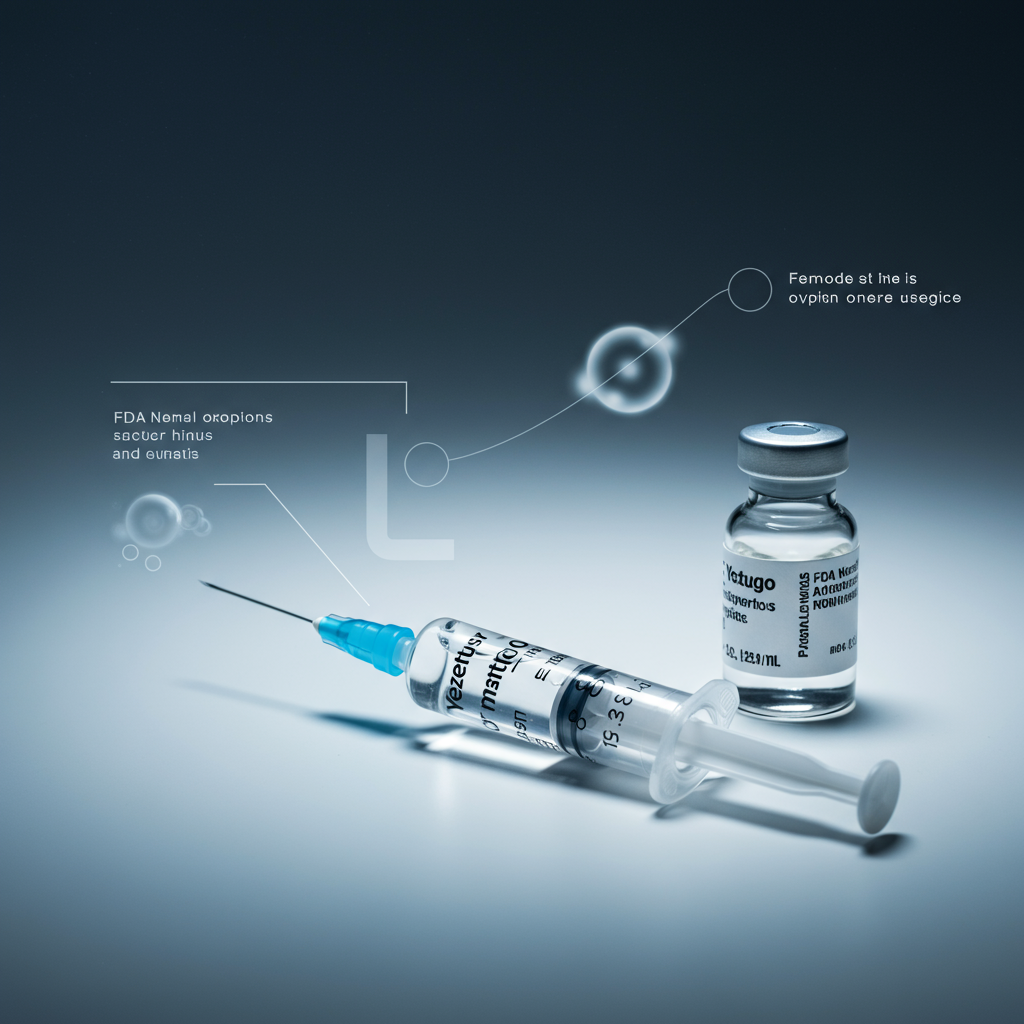The landscape of HIV prevention is poised for a significant shift following the U.S. Food and Drug Administration (FDA) approval of a groundbreaking new medication, Lenacapavir, marketed under the brand name Yeztugo. Approved on June 18, 2025, this drug offers a potentially transformative alternative to existing options, but its high price tag immediately raises concerns about its accessibility and ability to reach those who need it most.
Manufactured by Gilead Sciences, Yeztugo is approved for pre-exposure prophylaxis (PrEP), preventing sexually acquired HIV infection in adults and adolescents at risk. What sets it apart is its unique administration method: unlike daily oral PrEP pills such as Truvada and Descovy, Yeztugo is given as a subcutaneous injection just twice a year by a healthcare provider.
A Game Changer for Adherence
Experts and advocates are hailing Yeztugo as a major medical breakthrough, calling it potentially “the single best opportunity in 44 years of HIV prevention” and a tool that could help “end the HIV epidemic once and for all.” The enthusiasm stems largely from its long-acting nature, which directly addresses the primary challenge faced by daily oral PrEP: adherence.
While highly effective in clinical trials (up to 99% when taken consistently), the real-world effectiveness of daily pills can be significantly lower due to skipped doses. This inconsistent use, described as the “Achilles heel” of daily regimens, means many people who could benefit from PrEP aren’t getting full protection. A twice-yearly injection offers a much simpler, more reliable dosing schedule that could overcome barriers like busy lives, mental health challenges, or the stigma associated with taking daily medication.
Impressive Clinical Results
The high efficacy of Lenacapavir for prevention was demonstrated in key clinical trials. One study involving cisgender women in Africa reported zero HIV infections among participants receiving the injections, leading to its early termination due to compelling results. Another large trial including cisgender men, transgender women, and gender non-binary individuals showed that the twice-yearly shots reduced the rate of HIV infection by 96% compared to an estimate for those not using PrEP, and by 89% compared to a group taking daily Truvada. These outcomes have been described by researchers as “astounding,” “ridiculously high,” and “unheard of numbers” for HIV prevention studies.
Yeztugo works differently from older PrEP drugs. It’s the first in a new class of antiretrovirals that disrupt the virus’s capsid protein, preventing it from infecting cells and making copies.
The Significant Cost Barrier
Despite its scientific promise and proven effectiveness, the drug faces a major hurdle: its cost. Gilead has set the list price in the U.S. at approximately $28,218 per year, or about $14,109 per injection. This is substantially higher than the cost of generic oral PrEP, which can be as low as $30-40 per month or even less in some international contexts.
This high price immediately raises concerns about access. While the Affordable Care Act generally requires insurers to cover PrEP with no cost-sharing (as it has received an ‘A’ rating from the U.S. Preventive Services Task Force), patients may still face costs for associated lab tests and medical visits necessary for monitoring. Furthermore, insurers may implement strategies like complex prior authorizations or favor cheaper oral options, potentially limiting access to Yeztugo. A pending Supreme Court decision questioning the ACA’s preventive services mandate also adds uncertainty to future coverage requirements.
Experts worry that financial barriers could exacerbate existing disparities in PrEP use. Despite higher rates of new infections, Black and Latino gay and bisexual men have lower PrEP uptake than their white counterparts and may face greater challenges accessing expensive new medications.
Global Access and Funding Challenges
Access issues extend beyond the U.S. While Gilead states the U.S. pricing aligns with existing PrEP options and mentions plans for global access, including licensing agreements with generic manufacturers for 120 low- and middle-income countries, critics argue the scope is insufficient compared to the global burden of HIV. The estimated cost of mass production for two doses is remarkably low (around $25), highlighting the significant price difference. Steep cuts to U.S. foreign aid for HIV prevention programs could also undermine global distribution efforts needed to get this new tool to populations with the highest need.
The Path Forward
Gilead is working with insurers and offers programs like copay assistance (up to $7,200 annually) and a patient assistance program for low-income uninsured individuals in the U.S. The company is strategically positioning Yeztugo to capture a significant share of the growing U.S. PrEP market and sees it as crucial for its future growth. Analyst projections for peak sales vary widely, reflecting both the immense potential and the significant market/access challenges.
Ultimately, Yeztugo represents an incredible advancement offering a highly effective, convenient option that could significantly boost PrEP uptake and help turn the tide against the HIV epidemic. However, realizing this potential hinges on overcoming the substantial financial and systemic barriers to ensure equitable access for all who could benefit, regardless of their ability to pay or navigate complex healthcare systems.




